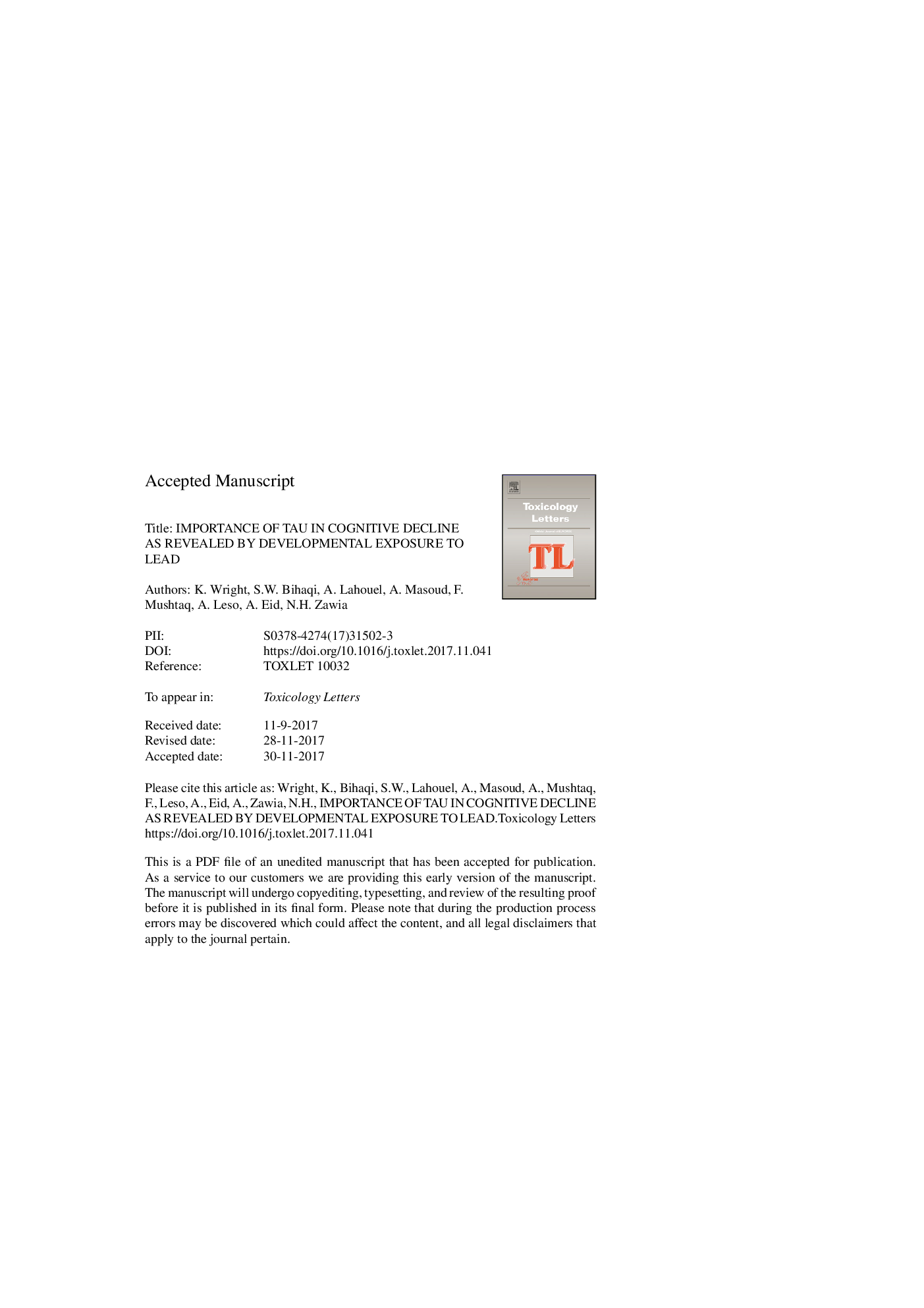| Article ID | Journal | Published Year | Pages | File Type |
|---|---|---|---|---|
| 8553461 | Toxicology Letters | 2018 | 27 Pages |
Abstract
Previous reports by us have determined that developmental exposure to the heavy metal lead (Pb) resulted in cognitive impairment in aging wildtype mice, and a latent induction in biomarkers associated with both the tau and amyloid pathways. However, the relationship between these two pathways and their correlation to cognitive performance needs to be scrutinized. Here, we investigated the impact of developmental Pb (0.2%) exposure on the amyloid and tau pathways in a transgenic mouse model lacking the tau gene. Cognitive function, and levels of intermediates in the amyloid and tau pathways following postnatal Pb exposure were assessed on young adult and mature transgenic mice. No significant difference in behavioral performance, amyloid precursor protein (APP), or amyloid beta (Aβ) levels was observed in transgenic mice exposed to Pb. Regulators of the tau pathway were impacted by the absence of tau, but no additional change was imparted by Pb exposure. These results revealed that developmental Pb exposure does not cause cognitive decline or change the expression of the amyloid pathway in the absence of tau. The essentiality of tau to mediate cognitive decline by environmental perturbations needs further investigation.
Related Topics
Life Sciences
Environmental Science
Health, Toxicology and Mutagenesis
Authors
K. Wright, S.W Bihaqi, A. Lahouel, A. Masoud, F. Mushtaq, A. Leso, A. Eid, N.H. Zawia,
